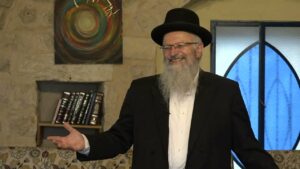Releasing Terrorists
by HaRav Shuel Eliahu, Chief Rabbi of Tzfat

Rabbi Shmuel Eliyahu issued a response as part of the “Daily Halacha” to the question, “What is the Halachic opinion on a deal where you release terrorists?” The rabbi provided a detailed opinion, explaining why the deal is completely contrary to the Torah’s view.
Halacha explicitly states: “Do not release captives for more than their value,” to prevent kidnappers from taking more people from Israel. Because of this Halacha, Maharil of Rothenburg opposed his own release in exchange for a large ransom demanded by his captors. Maharil was never released during his lifetime, and even years after his death, because they adhered to this Halacha and understood that releasing him at a high price would encourage kidnappers to continue abducting Jews.
In our case, the prohibition is much more severe. We are not paying money in exchange for captives, but rather releasing terrorists who have murdered or attempted to murder Jews. Experience teaches us conclusively that terrorists who are released will mostly return to engaging in terror. Thus, Yahya Sinwar, who orchestrated the major Simchat Torah massacre, and a significant part of his commanders and soldiers were released in the Gilad Shalit deal.
The bigger problem is that terrorists who are released encourage the youth in Gaza, Judea, Samaria, and Israeli Arabs to continue engaging in terror, even if the released themselves do not return to terror in part. The young people in Gaza and Samaria see that anyone who murders a Jew receives a large salary and eventually gets released, so they enlist to murder Jews in the future.
I read Halachic rulings that permitted the release of terrorists in the Jibril deal and praised the Gilad Shalit release deal. Their reasoning is that what matters is the immediate danger of the captive in front of us, not the future risk that other people may be killed by the released terrorists. This is how they also allowed the release of terrorists today, without considering the future risk.
This reasoning contradicts the Torah’s prohibition against releasing a murderer, regardless of the compensation received for him. The Torah says that by doing this, you flatter the land and encourage future murderers (Numbers 35:33). This view is against what is written in the Talmud and ruled in the Shulchan Aruch that captives are not released for more than their value (Shulchan Aruch YD 252:4), because by doing so, you encourage kidnappers to abduct Jews in the future.
The correct approach is to fight terrorists, as Abraham our father freed captives from the four kings. This is how the people of Israel freed captives in Arad, how David freed captives in Ziklag, and how we did in Operation Entebbe, breaking the arm of the wicked from one end of the world to the other (see YD 10:252).






